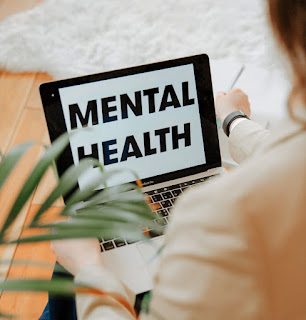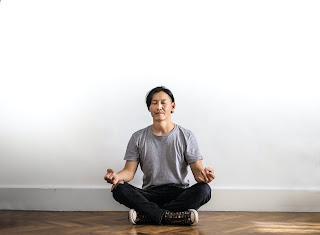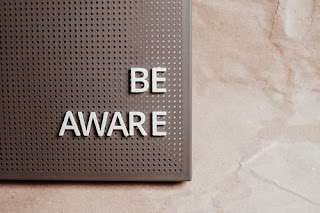Exercise helps mental health the most?
 |
| Mental Health |
This is the most important thing you need to do for a happy, healthy life. Exercise for a healthy mind is the most important thing which will keep your mind healthy and also improve your body health. Most people do not believe in this exercise, but it surprised them after their exercise. Exercise increases the blood circulation in your brain and also helps to improve memory. It is the good, and best things that help to stay away from dementia, brain injuries, and other age-related diseases. This exercise is very useful for people who have diabetes, hypertension, and heart problems.
This exercise is also helpful to improve brain function in elderly persons. Here are the different exercises you can practice for a healthy mind.
What exercise helps mental health the most?
 |
| Tai Chi |
Tai Chi for Healthy Mind
It is a mind and body exercise which is helpful for the mind and body. Tai Chi exercise is a very simple exercise that should be performed for many years. Tai Chi exercise helps to keep the brain and body healthy. It is also helpful for the prevention of many kinds of brain diseases and age-related problems.
 |
| Yoga |
Yoga for Healthy Mind
This exercise is very helpful for the health and well-being of our minds and body. It is the exercise that keeps our mind and body healthy. It can also improve memory, mood, and brain function in an old person. It is helpful in many diseases like diabetes, cancer, and heart problems. It is also helpful to improve the sleeping pattern of our minds and body.
 |
| Breathing Exercise |
Breathing Exercise for Healthy Mind
Breathing exercise is the exercise that helps to increase the activity of the brain and body. It helps to regulate the body's blood circulation and blood pressure. It is also helpful to keep our minds happy and relaxed.
 |
| Body Strengthening |
Body Strengthening Exercise for Healthy Mind
Body strengthening exercise is the exercise that helps to build our body and improve our brainpower. It also helps to improve the flexibility of our bodies and mind.
Mental Exercise for Healthy Mind
Mental exercise is the exercise that keeps our minds happy and relaxed. It is also helpful to develop the mind. It is also helpful to keep our minds healthy. It is helpful to improve the memory and concentration in our minds.
 |
| Happy Mood |
Mood Improving Exercise for Healthy Mind
Mood improving exercise is the exercise that helps to improve the mood and happiness of our mind and body. It is also helpful to maintain the stability of the mind and body. It also helps to improve the mental health of the people. It is also helpful in the treatment of many diseases like hypertension, heart disease, cancer, arthritis, and diabetes.
The benefits of following these mind exercises are many and it improves the health and well-being of our mind and body. It helps in the prevention of many diseases. If you want to know about the health and well-being of your mind and body, then join yoga and meditation classes and enjoy the benefits of these mental exercises.
Which exercise is best for mental health?
The Mindful Self-Compassion Practice
The following is a set of phrases or mental exercises (or both) that I have found beneficial for creating a state of mindfulness or a state of health.
This is the Mindful Self-Compassion Practice.
 |
| Mindfulness |
Mindfulness
The practice of being mindful means to pay attention to purpose, in the present moment, and non-judgementally. You are being aware of your experiences. You can know the breath, the thoughts in your mind, and the sights and sounds around you. These three are an awareness of the present moment. We often associate mindfulness, with meditation.
Self-compassion
To practice, self-compassion is to practice self-kindness. To practice self-kindness is to be aware of your thoughts and feelings, notice when you are judging yourself harshly, notice your self-criticism and your self-isolation, and practice understanding your difficulties and your feelings. By being compassionate towards yourself, you might feel better.
The Mindful Self-Compassion Practice:
Pay attention to purpose notice where your attention is focused in the present moment.
Be aware of the present moment
Be aware of what you are experiencing. You might use one of the mindfulness practices above to do this, or you can watch a sunset, or watch your breath.
Be non-judgmental
Notice your thoughts and feelings, and how they make you feel. Notice that you are not the thoughts and feelings that you are experiencing. Notice the thoughts and feelings, but don’t be caught up in them. Simply be aware.
 |
| Be kind |
Be kind to yourself
Notice how you are treating yourself. You are not a bad person, and if you want to be kind to yourself, then you can.
Be compassionate towards yourself
Be aware of how you are talking to yourself and towards yourself. You don’t have to agree with what you are thinking. You don’t have to like it. Notice it. Just notice it. You will not go in and change it. You are just going to notice.
These are the mindfulness practices that helped me find the resilience that I needed to continue to practice meditation and mindfulness daily even during the hardest parts of life.
The Power of Mindfulness in Depression:
Mindfulness has helped me continue to make strides in my life. And this has translated into a significant decrease in my depression. I feel so much happier, and more in control of my life than I did before.
 |
| Mindfulness in Depression |
Mindfulness has also helped me better understand my mental illness.
Mental illness is not a sign that something is wrong with you or that you’re weak. And just like any other human being, there is so much that you can do to improve your life. For those struggling with depression, depression can be a genuine struggle.
But by practicing mindfulness daily, you can find some hope. And by understanding your thoughts, your feelings, and your life, you might gain some understanding of why you feel how you do.
Once you’ve had this understanding, it might be time to take some action and take positive steps toward improving your life. And therefore mindfulness is one of the best self-help practices you can do.
Learn how to cope with depression with daily self-help tips. Check out some self-help for depression articles for more help with depression and learning how to cope with depression and its symptoms. Lets us know your views about the above information that how much it was helpful to you.
Learn more about the best ways to reduce stress and anxiety naturally.

Comments
Post a Comment